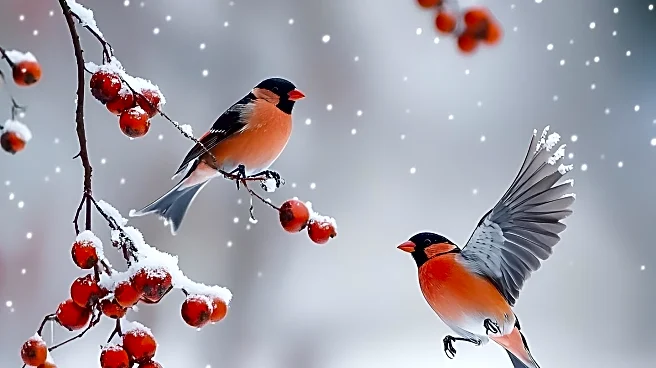What's Happening?
As the gardening season winds down, there is a growing emphasis on supporting migratory and non-migratory birds during the winter months. Gardeners are encouraged to provide high-energy food sources such as unsalted peanuts, black-oil sunflower seeds, and suet to help birds fuel up for their long journeys south. Additionally, leaving perennials standing through winter can offer essential food and habitat for birds. The article highlights the importance of reducing artificial lighting, which can disorient migratory birds that rely on celestial navigation. By turning off outdoor lights and leaving fallen leaves in garden beds, gardeners can create a more bird-friendly environment.
Why It's Important?
This initiative is crucial for maintaining bird populations, which play a significant role in pest control and pollination. By supporting birds during the winter, gardeners can ensure a healthier ecosystem come spring. The reduction of artificial lighting not only aids birds but also contributes to energy conservation. This approach benefits both the environment and gardeners, as birds help control insect populations that could otherwise damage plants. The practice of leaving perennials and fallen leaves also promotes soil health and biodiversity, making it a sustainable gardening practice.
What's Next?
Gardeners are likely to continue these practices as awareness of their benefits grows. The gardening community may see increased collaboration with environmental organizations to promote bird-friendly practices. Additionally, garden centers might offer more resources and products tailored to supporting wildlife during the winter months. As more people adopt these practices, there could be a noticeable impact on local bird populations and overall garden health.
Beyond the Headlines
This movement reflects a broader trend towards sustainable and wildlife-friendly gardening practices. It highlights the interconnectedness of ecosystems and the role humans play in maintaining ecological balance. The emphasis on reducing light pollution also aligns with global efforts to mitigate environmental impacts and promote biodiversity.











